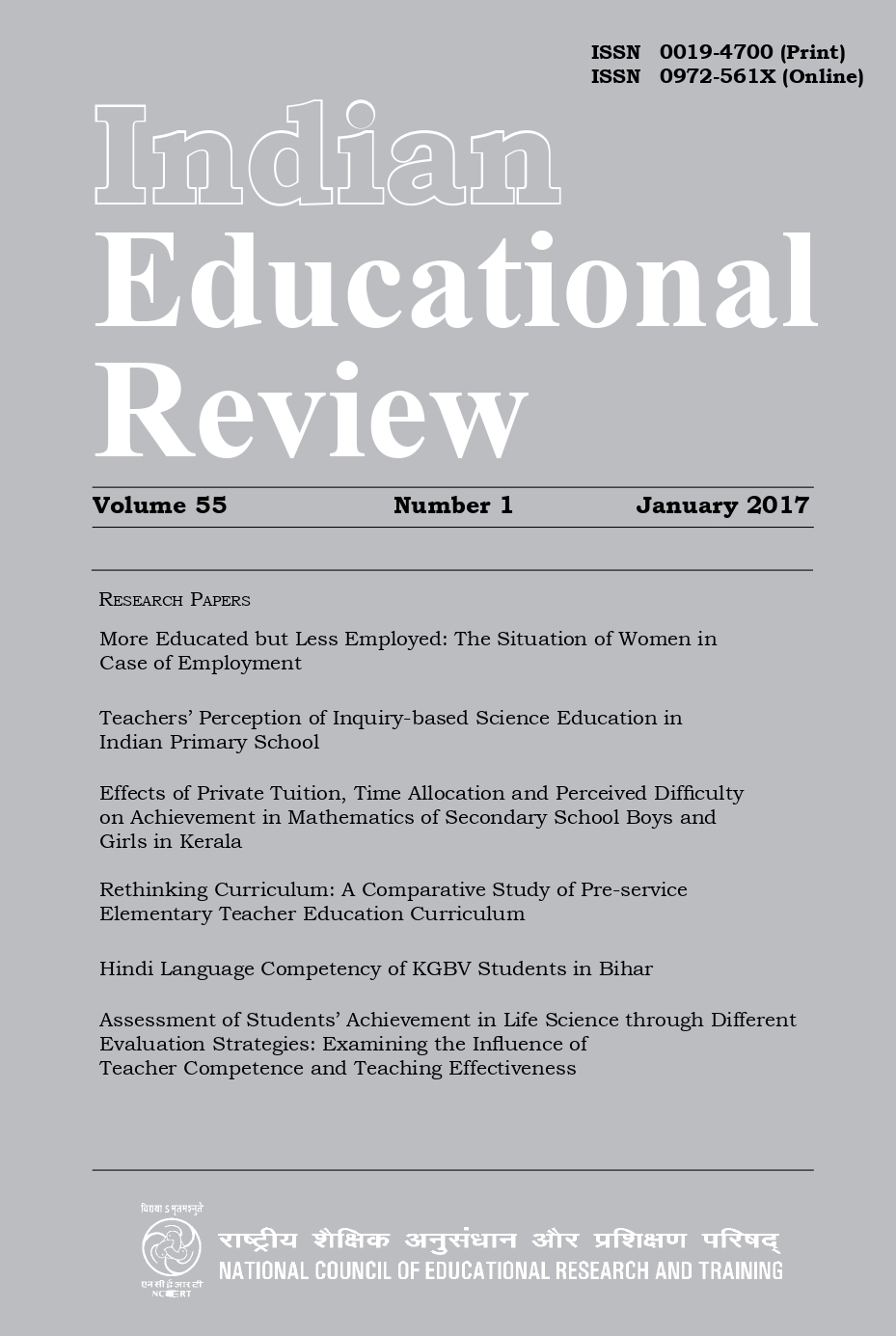Curricular Intention, Teachers’ Comprehension and Transaction of Contemporary EVS Textbooks: A Study
Published 2017-01-31
Keywords
- Environmental Studies,
- Focus Group on ‘Work and Education’
How to Cite
Abstract
Enriched by emerging insights into children’s learning, educationists are increasingly and universally acknowledging the importance of locating knowledge in the immediate contexts of children. The need for early learning to be holistic, immediate and unconstrained by artificial boundaries of disciplines is also being paid due heed to in framing the school curricula. In India since quite some time the need for early learning to be ‘integrated’ has been voiced at various fora and in different documents. Despite the policy rhetoric, however, actualising the idea of integration remained and still remains a challenge in a system too used to the ‘subject’ lens of looking at knowledge. Quite often, the efforts at creating ‘integrated’ textbooks culminated in isolated, insulated and atomistic concepts drawn from different areas and bound in a single cover. Environment a Studies for long was construed mostly as the study of natural and physical environment, heavily underpinned by the ‘conservation education’ or ‘plantation’ perspective. NCF-2005 was a documented endorsement of the contemporary and academically mature outlook in education.

